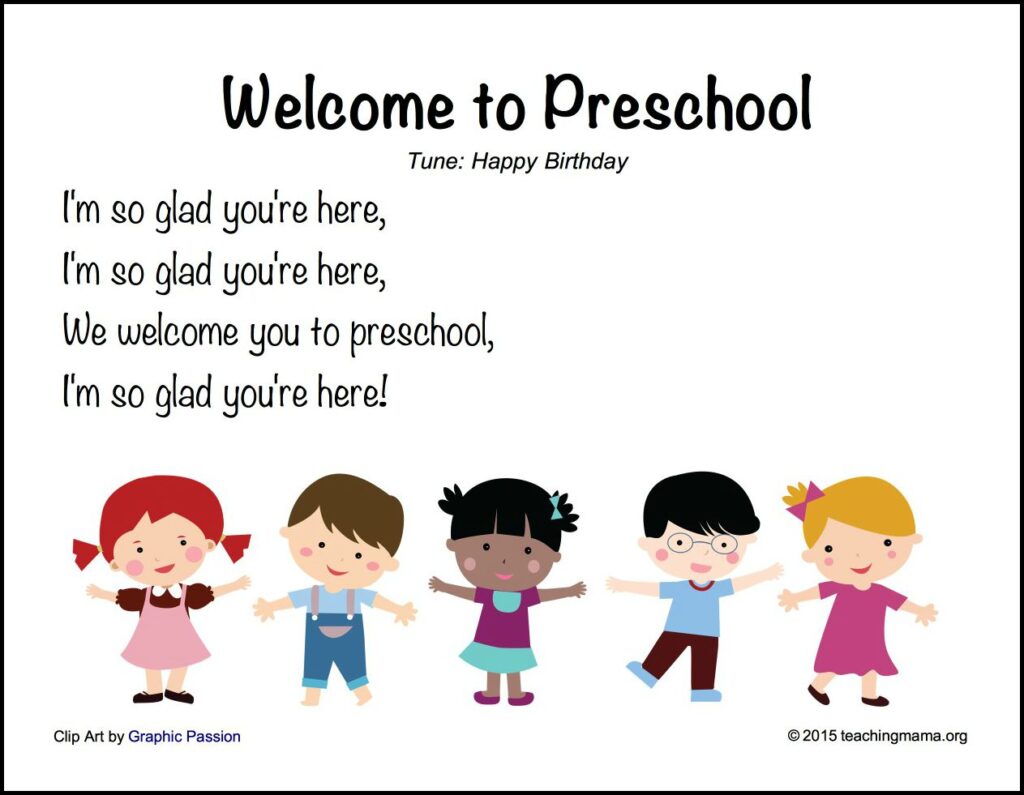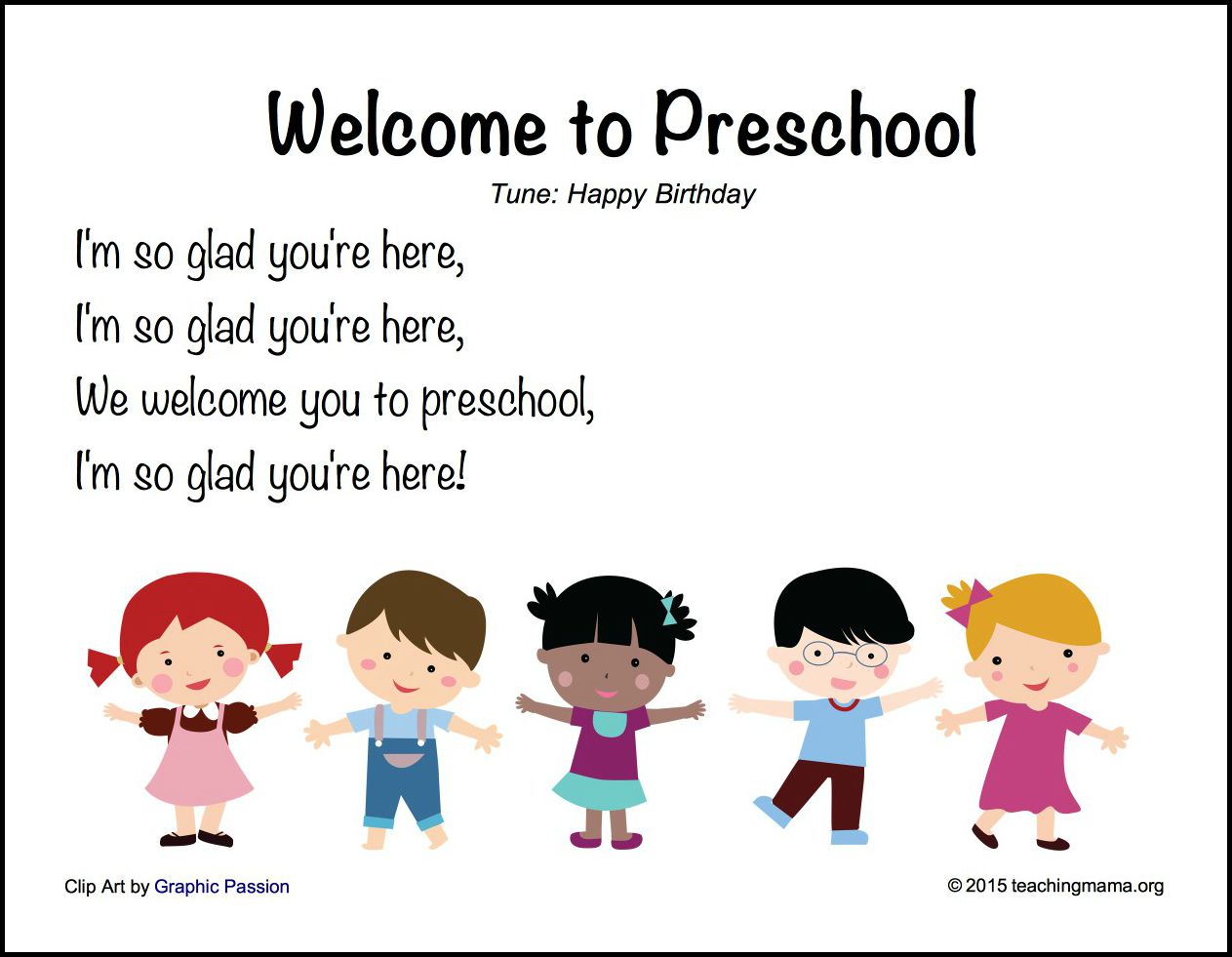
Welcome Preschoolers: A Comprehensive Guide for Parents and Educators
The transition to preschool is a significant milestone for both children and their families. It marks the beginning of a journey of learning, socialization, and independence. Welcome preschoolers to a world of exciting discoveries and structured learning environments. This comprehensive guide aims to provide parents and educators with the essential information and strategies to ensure a smooth and successful preschool experience for every child. We’ll delve into preparing children for preschool, understanding the curriculum, addressing common challenges, and fostering a positive learning environment.
Preparing Your Child for Preschool
Preparing your child for preschool involves more than just packing a backpack. It’s about nurturing their emotional, social, and cognitive readiness. Here are some key areas to focus on:
- Emotional Readiness: Help your child manage separation anxiety by practicing short periods of separation. Leave them with a trusted caregiver for increasing durations. Talk about preschool in a positive and exciting way, emphasizing the fun activities they will participate in.
- Social Skills: Encourage your child to interact with other children through playdates, park visits, or community events. Teach them basic social skills such as sharing, taking turns, and using polite language like “please” and “thank you.”
- Cognitive Skills: Engage your child in activities that stimulate their cognitive development, such as reading books, playing puzzles, and engaging in imaginative play. Introduce them to basic concepts like colors, shapes, numbers, and letters.
- Self-Help Skills: Preschoolers need to be able to perform basic self-help tasks independently. Practice dressing, toileting, washing hands, and eating with utensils. This will boost their confidence and make the transition to preschool easier.
Understanding the Preschool Curriculum
Preschool curricula vary depending on the school and its educational philosophy. However, most preschool programs focus on the following key areas:
- Language and Literacy: Activities designed to develop pre-reading skills, such as recognizing letters, rhyming words, and understanding the concept of print. Storytelling, reading aloud, and group discussions are common activities.
- Mathematics: Introduction to basic mathematical concepts such as counting, sorting, patterning, and measuring. Hands-on activities like playing with blocks, using manipulatives, and singing number songs are used to make learning fun and engaging.
- Science: Exploration of the natural world through experiments, observations, and discussions. Children learn about plants, animals, weather, and the environment.
- Social Studies: Introduction to concepts related to community, culture, and history. Children learn about different families, traditions, and occupations.
- Creative Arts: Opportunities for children to express themselves through art, music, drama, and movement. Activities such as painting, drawing, singing, dancing, and role-playing are used to foster creativity and self-expression.
- Physical Development: Activities designed to develop gross motor skills (running, jumping, climbing) and fine motor skills (writing, cutting, drawing). Outdoor play, games, and art projects are used to promote physical development.
Addressing Common Preschool Challenges
While preschool can be a wonderful experience, it’s not uncommon for children to face challenges during the transition. Here are some common issues and strategies for addressing them:
- Separation Anxiety: Reassure your child that you will return and establish a consistent goodbye routine. Avoid lingering at the classroom door, as this can prolong the anxiety. Talk to the teacher about strategies for comforting your child.
- Behavioral Issues: Address any behavioral issues promptly and consistently. Work with the teacher to develop a plan for managing challenging behaviors. Teach your child appropriate ways to express their feelings and resolve conflicts.
- Academic Struggles: If your child is struggling with a particular subject, communicate with the teacher to identify areas where they need extra support. Provide opportunities for practice and reinforcement at home.
- Social Difficulties: Encourage your child to participate in group activities and make friends. Teach them social skills such as sharing, taking turns, and resolving conflicts peacefully. If your child is being bullied, work with the teacher and school administration to address the issue.
Fostering a Positive Learning Environment
Creating a positive learning environment is essential for children’s success in preschool. Here are some key strategies for fostering a supportive and stimulating classroom:
- Build Strong Relationships: Establish positive relationships with each child based on trust, respect, and empathy. Get to know their individual interests, strengths, and needs.
- Create a Safe and Supportive Classroom: Ensure that the classroom is a safe and welcoming space where children feel comfortable taking risks and making mistakes. Establish clear rules and expectations and consistently enforce them.
- Provide Engaging and Meaningful Activities: Plan activities that are developmentally appropriate, engaging, and relevant to children’s interests. Use a variety of teaching methods to cater to different learning styles.
- Encourage Exploration and Discovery: Provide opportunities for children to explore, experiment, and discover new things. Create learning centers that are filled with interesting materials and resources.
- Promote Collaboration and Cooperation: Encourage children to work together on projects and activities. Teach them how to share ideas, listen to others, and resolve conflicts peacefully.
- Celebrate Successes: Acknowledge and celebrate children’s accomplishments, both big and small. Provide positive feedback and encouragement to help them build confidence and self-esteem.
The Importance of Parent-Teacher Communication
Open and frequent communication between parents and teachers is crucial for a child’s success in preschool. Regular communication allows parents and teachers to share information about the child’s progress, address any concerns, and work together to support the child’s learning and development. Here are some ways to facilitate effective parent-teacher communication:
- Parent-Teacher Conferences: Schedule regular parent-teacher conferences to discuss the child’s progress, strengths, and areas for improvement.
- Daily or Weekly Updates: Provide parents with daily or weekly updates on the child’s activities and accomplishments in the classroom.
- Email and Phone Communication: Use email and phone communication to address any urgent concerns or questions.
- Classroom Newsletters: Send out regular classroom newsletters to keep parents informed about upcoming events, activities, and curriculum topics.
- Parent Involvement Opportunities: Provide opportunities for parents to get involved in the classroom, such as volunteering, helping with special events, or sharing their expertise.
Making the Most of the Preschool Experience
Preschool is a valuable opportunity for children to develop essential skills and prepare for kindergarten. By working together, parents and educators can ensure that every child has a positive and enriching preschool experience. Remember to:
- Be patient and supportive: The transition to preschool can take time, so be patient and supportive of your child.
- Communicate openly with the teacher: Keep the lines of communication open with the teacher and address any concerns promptly.
- Get involved in your child’s learning: Participate in school events, help with homework, and read to your child regularly.
- Celebrate your child’s successes: Acknowledge and celebrate your child’s accomplishments, both big and small.
By following these guidelines, you can help your child thrive in preschool and build a strong foundation for future success. Welcome preschoolers into a world of learning and growth, setting them on a path to a bright future. Remember that early childhood education is a critical investment, and by actively participating in your child’s preschool journey, you are giving them a significant advantage. The collaborative effort between parents and educators ensures that welcome preschoolers feel supported, valued, and ready to explore the exciting world around them. As they embark on this educational adventure, the focus should always be on creating positive experiences and fostering a love of learning that will stay with them for a lifetime. Welcome preschoolers – the future is bright!
Welcome preschoolers is more than just an introduction; it’s a commitment to providing a nurturing and stimulating environment where children can grow and learn. The early years are crucial for development, and preschool plays a vital role in shaping young minds. Ensuring a smooth transition and a positive experience is paramount for fostering a lifelong love of learning. So, let’s all welcome preschoolers with open arms and a commitment to their well-being and education.
Welcome preschoolers and embark on this exciting journey together. By understanding the importance of preparation, curriculum, communication, and a positive learning environment, we can ensure that every child has the opportunity to thrive. Remember, the early years are a critical foundation for future success, and by investing in preschool education, we are investing in the future of our children and our communities. We must welcome preschoolers into an encouraging environment.
When we welcome preschoolers into our educational system, we are not just opening a door, but we are opening a world of possibilities to them. The focus should always be on providing a nurturing, stimulating, and supportive environment where they can learn, grow, and develop to their fullest potential. This includes understanding their individual needs, fostering their creativity, and encouraging their curiosity. By doing so, we are not only preparing them for kindergarten but also setting them on a path to a lifetime of learning and success. So let’s welcome preschoolers and commit to providing them with the best possible start in their educational journey. It is our responsibility to welcome preschoolers with open arms, and to provide them with the tools and resources they need to succeed.
The phrase welcome preschoolers encapsulates the beginning of an important journey, and it’s essential to approach it with thoughtfulness and care. Let’s welcome preschoolers and pave the way for a generation of confident, capable, and compassionate individuals.
[See also: Choosing the Right Preschool for Your Child]
[See also: Tips for Dealing with Preschool Separation Anxiety]
[See also: Activities to Prepare Your Child for Kindergarten]

